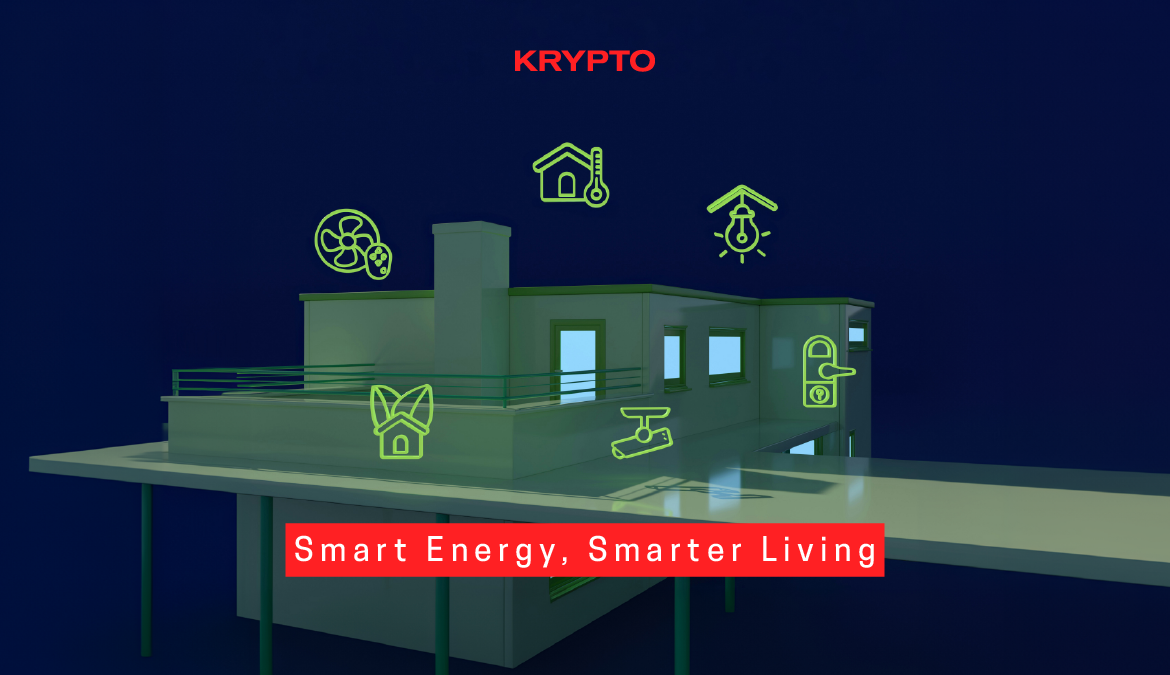Energy Efficiency and Cost Savings with Smart Home Automation

In today’s fast-paced world, many homeowners are seeking ways to make their homes more energy-efficient and reduce their utility bills. Smart home automation is revolutionizing the way we manage our energy usage, providing greater control, convenience, and cost savings. Whether it’s through smart thermostats, lighting systems, or connected appliances, the benefits of smart home automation go beyond convenience—it’s a step toward sustainability and financial efficiency.
What is Smart Home Automation?
Smart home automation involves the use of interconnected devices, controlled via a smartphone or central hub, to manage household functions. These systems enable users to control lights, heating, cooling, and even appliances remotely. Some advanced systems use artificial intelligence (AI) to learn user preferences and adjust settings automatically for optimal energy use.
Energy Efficiency Benefits
Smart home automation contributes significantly to reducing energy consumption in the following ways:
- Smart Thermostats:
One of the biggest energy-saving technologies in a smart home is a smart thermostat. Unlike traditional thermostats, these devices learn your daily routine and adjust heating and cooling based on when you’re home or away. For instance, a smart thermostat can lower the temperature during the day when the house is empty and raise it before you return, optimizing energy use and reducing wastage. This leads to significant savings on heating and cooling, which account for nearly 50% of energy use in the average home.
- Smart Lighting:
Smart lighting systems use motion detectors, timers, and programmable schedules to ensure that lights are only on when needed. These systems also allow for dimming, which can further save energy. For example, a smart light can turn off automatically when you leave a room, or be adjusted remotely if you forgot to turn off a light before leaving the house.
- Energy-Efficient Appliances:
Smart appliances, such as washers, dryers, and refrigerators, are designed to run more efficiently. Some smart devices allow users to monitor and control appliance usage, ensuring that they only run during off-peak hours when energy rates are lower. This not only reduces energy consumption but also lowers electricity costs.
- Energy Monitoring:
Many smart home systems provide real-time energy monitoring. By tracking how much energy your devices and appliances are consuming, you can make informed decisions about which devices to adjust or replace with more efficient alternatives. Knowledge is power, and with smart home energy monitors, you can directly see how small changes can lead to big savings.
Cost Savings
The energy efficiency of smart home automation directly translates to cost savings. Here are some key ways that smart homes can reduce your utility bills:
- Lower Energy Bills:
By optimizing heating, cooling, lighting, and appliance usage, smart home automation significantly reduces energy consumption. According to Energy Star, smart thermostats can save users up to 10% on heating and cooling costs annually. Smart lighting can also cut energy usage by as much as 75%, especially when combined with energy-efficient LED bulbs.
- Reduced Maintenance and Longevity:
Many smart systems offer predictive maintenance alerts, which can help prevent costly repairs by catching small issues before they become major problems. This proactive approach to home management not only saves money but also extends the lifespan of appliances and systems, reducing the need for replacements.
The Future of Smart Home Automation and Energy Efficiency
As technology continues to evolve, smart home systems are becoming even more intelligent and integrated. Future innovations may include more advanced AI-driven systems that predict energy usage patterns more accurately, integrate renewable energy sources like solar panels into the grid, and allow homes to operate more efficiently during power outages.
Smart home automation not only enhances comfort and convenience but also plays a critical role in reducing our environmental footprint. By optimizing energy use and reducing costs, these systems help homeowners contribute to sustainability while saving money.
Investing in smart home automation is a wise choice for anyone looking to reduce energy consumption and lower their utility bills. With the wide variety of smart devices available today, homeowners can tailor their systems to meet their specific needs, maximizing both energy efficiency and cost savings. As more homes embrace this technology, the collective impact on the environment and household budgets will be profound.



















